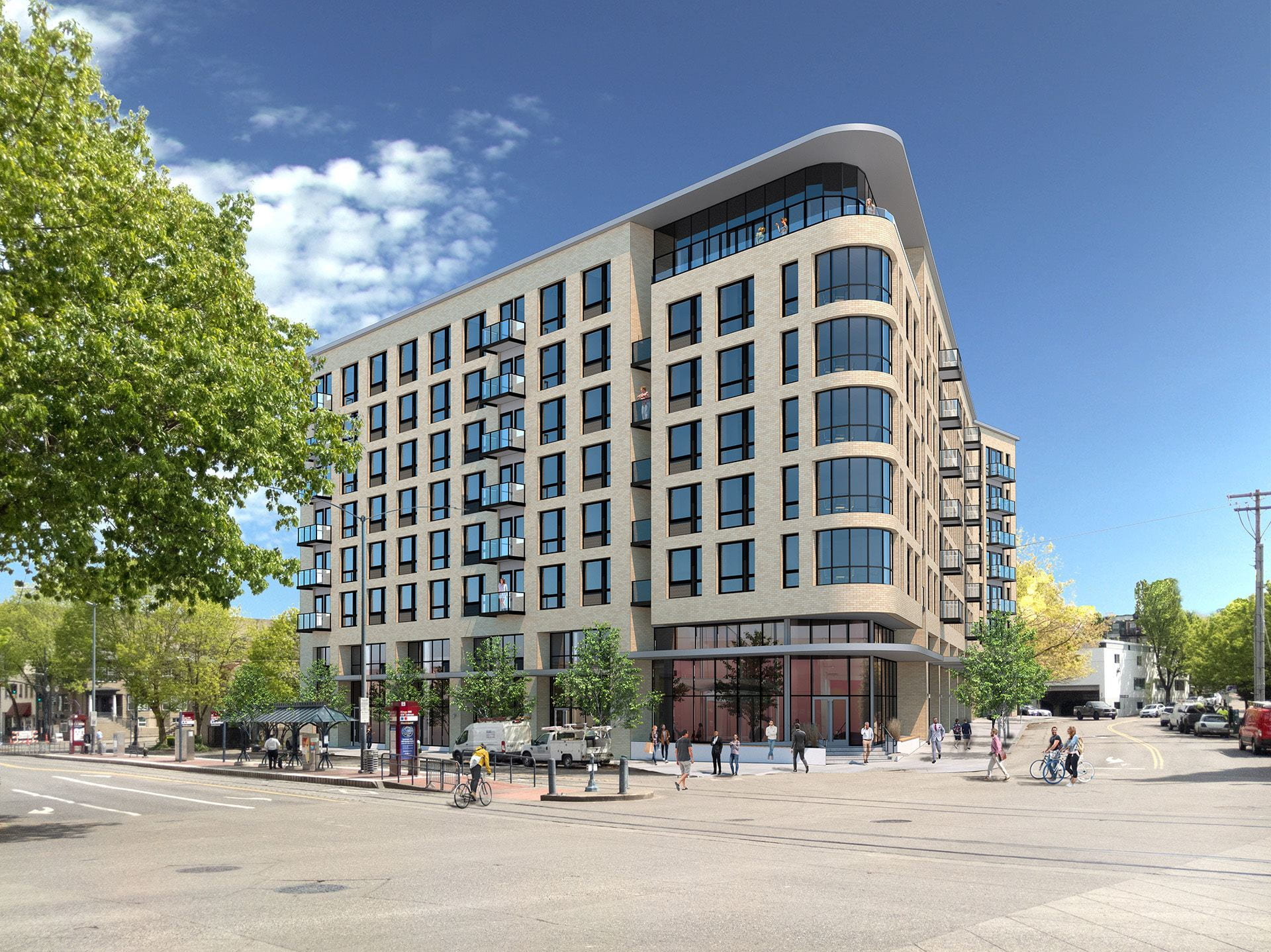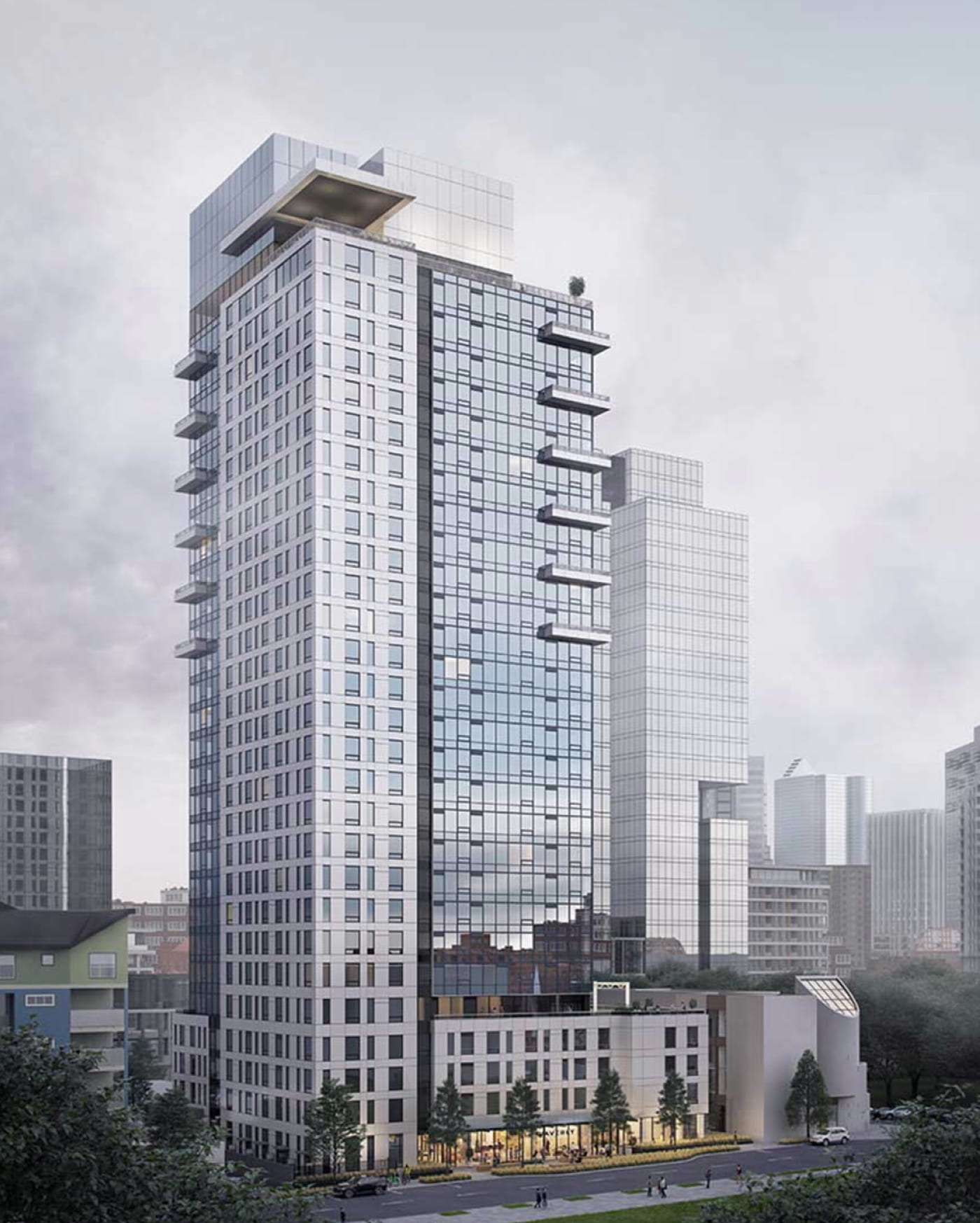
This summer I worked in the Boston office of Greystar Real Estate Partners (“Greystar”). Greystar owns, operates, and develops conventional multifamily, collegiate, and active adult housing in 179 global markets with 52 offices across 12 countries and over 14,000 employees. Greystar has three industry-leading business lines: development/construction with over $12 billion in development projects currently underway across over 75 projects, investment management with $33 billion in assets under management across over 162,500 owned units, and property management with 495,000 units/beds managed across almost 1800 communities.
While Greystar is primarily known for rental housing, it develops and owns other asset types as well, including mixed-use projects with significant retail, hotel, and office components. For example, the recently completed Park 12 in San Diego is a $400 million, 37-story apartment tower with 718 units, 1216 underground parking spaces, two pools, and multiple rooftop terraces, all overlooking Petco Park, the home of Major League Baseball’s San Diego Padres, and the San Diego Bay. This complex additionally includes 45,000 square feet of retail space, a public square, and an art display. Similarly, in Charleston, Greystar recently completed Courier Square, a $100 million project featuring 226 apartment units and related amenities (including a rooftop pool overlooking Charleston harbor), 70,000 square feet of office space, 19,000 square feet of ground floor retail space, and 650 structured parking spaces. The apartment component of this project, called The Guild, was purchased by PGIM Real Estate in September 2018 for a reported $81 million.
My summer with Greystar started with an orientation in Dallas for the company’s 122 undergraduate and graduate interns where we heard from executive leaders and others at the company about Greystar, its business, and the pillars of excellence and core values that underlie the company. The interns represented many different states and countries and worked in various roles across the U.S. for the company’s different lines of business. The ten graduate interns were focused primarily on the company’s development and investment platforms in cities such as Boston, Charleston (where Greystar is headquartered), Los Angeles, New York, San Francisco, and Seattle. The other graduate interns were from Columbia Business School (1), Harvard Business School (1), UCLA Anderson (2), UNC Kenan-Flagler (1), UVA Darden (2), and Wharton (2).
As part of the company’s development team, I had the benefit of working on a fully integrated platform that has developed $12.4 billion of rental housing representing more than 41,000 units. The company is consistently ranked as one of the largest developers of rental housing in the U.S. by the National Multifamily Housing Council, ranking third in 2018 with 5,758 units started and after ranking first the prior year with 5,651 units started. Similarly, Greystar has been recognized as one of the largest builders of rental housing in the country by the National Multifamily Housing Council.

While Greystar’s New England development team covers Connecticut, Maine, Massachusetts, New Hampshire, New York, Rhode Island, and Vermont, its primary focus is the Greater Boston area, where a strong economy led by the area’s world-renowned educational institutions, hospitals, corporations, and innovation companies has resulted in significant demand and rent growth across all property sectors, including rental housing. During my internship, the Greystar team was finishing up two projects in the area – Elan Union Market, a 282-unit conventional midrise in Watertown, MA, and Everleigh Cape Cod Apartments, a 225-unit active adult midrise in Hyannis, MA. In addition, the team was managing the construction of a $134 million student housing and dining complex with 1210 beds on the campus of UMass Dartmouth. I had the opportunity to tour these projects, sit in on some owner/architect/contractor meetings, and assist in bringing these projects to completion.
As Greystar and its New England development team seek to grow the company’s development pipeline in the region, most of my time was spent on underwriting and evaluating new deals. I first researched opportunities to determine whether the markets and parcels were appropriate for Greystar. Next, I reviewed comparable property performance and other market data to determine the appropriate product type, unit mix, rent, and operating expenses. In consultation with Greystar’s construction team, I would then estimate the hard and softs costs of construction based on the type of construction, labor availability, and location. Finally, I would model all of these assumptions to determine whether the opportunity met Greystar’s investment requirements. If these requirements were met, we would put together a letter of intent and begin negotiations with the seller. During my summer, we analyzed a number of exciting opportunities that will hopefully contribute to Greystar’s portfolio and the Greater Boston economy in future years.
